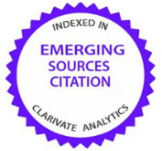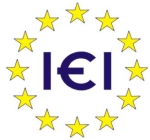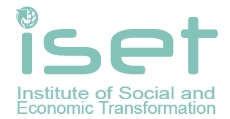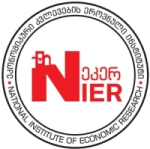Concept of smart specialization in the context of the development of Ukraine`s economy
Abstract
Introduction. Over recent years, Ukraine has made considerable efforts in shaping the current state policy for the development of regions, where priority development of the territories is a further reformation of the system, which together will ensure the country's economic growth. Therefore, it is precisely today that has never before been given special attention to the European innovation concept of the development of regions on the basis of smart specialization.
Aim and tasks. The purpose of the article is to study the peculiarities of the smart specialization approach to the development of the policy of regional development of Ukraine, namely: 1) studying the concept of smart specialization, its principles and essence; 2) determining the boundaries specialization as a tool in the development of the region; 3) development of recommendations based on the use of analytical methods to identify potential priority areas of smart specialization.
Results. The article analyzes smart-specialization, as an instrument of regional development, allows to integrate the key aspects of vital functions and development and instrumental in an active collaboration and co-operation of different participants of process of development for the sake of creation of general prospect, and also foresees creation of unique resources and possibilities on the basis of unique industrial, of a particular branch structures and proper base of knowledge. The use of smart-specialization, as to the instrument of development of regions, is regulated four simple rules: choice and critical mass; competitor advantage; interconnection and clusters; general management, - that behave to the sphere of researches and innovations which are also used in other spheres, and in particular to social, economic, protective environment and others like that.
Conclusions. For Ukraine, implemented models of smart specialization is an urgent task, and on its basis it is possible to unlock the regional potential for structural and technological changes, as well as industrial modernization of innovative principles. This is important in terms of overcoming the destructive tendencies of conservation of the inefficient economic structure of the regions of Ukraine based on the artificial identification of certain industrial regions as priority.
Keywords:
smart specialization; regional development; public regional policy.References
2. Bublyk, M. I. (2015). Technogenic damages in the national economy: economic evaluation and principles of state regulation. Lviv, Publishing House of Lviv Polytechnic [in Ukrainian].
3. Gulc, A. (2015). Role of Smart Specialisation in Financing the Development of Regions in perspective 2020. Business, Management and Education, 13(1), 95–111. DOI: 10.3846/bme.2015.249.
4. Kosenkova, T. V. (2017). Prospects for development of smart-specialization in Kharkiv region. Sotsialna ekonomika, 53(1), 76–80. [in Ukrainian].
5. European Commission (2014). Communication from the Commission to the European Parliament, the Council, the European Economic and Social Committee and the Committee of the Regions for a European Industrial Renaissance. Com (2014) 14 Final. Brussels.
6. Pyka, Ya. & Yanishevski, A. (2014). Smart specialisation in regional innovation ecosystems. Zhurnal yevropeiskoi ekonomiky, 13 (1), 32–50. [in Ukrainian].
7. Spiesberger, M., Stanionyte, L., Gnamus, A., Yegorov, I., & Josimovski, S. (2017). The Role of Smart Specialization in the EU Enlargement and Neighborhood Policies. Danube-INCO.NET. JRC Science for Policy Report.
8. McCann, P., & Ortega-Argilés, R. (2011). Smart specialisation, regional growth and applications to EU cohesion policy. Document de treball de l'IEB 2011/14, Institut d'Economia de Barcelona.
9. Rodchenko, V. & Prus, Ju. The satisfaction of innovative development in the context of a strategy of a specialized specialization. Menedzment XXI stolittja: hlobalizacijni vyklyky, 156-166. [in Ukrainian].
10. Ortega-Argiles, R., Goddard, J., Goenaga, X., Landabaso, M., Morgan, K., Nauwelaers, C., & Foray, D. (2012). Guide to Research and Innovation Strategies for Smart Specialisations (RIS 3). Luxembourg: Publications Office of the European Union. DOI: 10.2776/65746.
11. European Commission. (n.d.). ICT in education. EU Smart Specialisation Platform. Retrieved from:http://s3platform.jrc.ec.europa.eu/
12. Callaert, J., B. Van Looy & Vereyen, C. (2011). Descriptive Report: Concordance from Technology to Industry.
13. Bublyk, М.І. & Koropecka, T.O. (2011). Fuzzy methods of managing the financial resources of the region in order to compensate for technogenic damages. Bulletin of the Lviv Polytechnic National University. Problems of Economics and Management, 698, 132–139. [in Ukrainian].
14. OECD. (2014). Innovation-driven Growth in Regions: The Role of Smart Specialisation, Preliminary Version. Paris: OECD.
15. Foray, D. (2014). The centrality of entrepreneurial discovery in building and implementing a smart specialisation strategy. Italian Journal of Regional Science, 13(1), 33–50.
16. Bublyk, М. І. (2014). Theoretical basis for expert system to forecast and assess economic impact of anthropogenic pollution on population disease level. Marketing and Management of Innovations, 3, 206–221.
17. Sandu, S. (2012). Smart specialization concept and the status of its implementation in Romania. Procedia Economics and Finance, 3, 236–242.
18. Bublyk, М.І. (2014). Formation of the mechanism of state regulation of technogenic damages on the basis of fuzzy cluster analysis of branch development. The formation of the mechanism of sustainable economic development: theory and practice, 144–152. [in Ukrainian].
19. Foray, D., David, P., & Hall, B. (2009). Smart specialization – the concept. Knowledge economists, Policy Brief, 9(85), 1-5.
20. OECD (2005). Guidelines for Collecting and Interpreting Innovation Data, 3rd Edition. Paris: OECD.
21. Olaniyi, E. O., & Reidolf, M. (2015). Organisational innovation strategies in the context of smart specialization. Journal of Security & Sustainability Issues, 5(2). 213–227.
22. Dunayev, I. V. (2016). Regional modernization and managerial innovations: the best foreign experience for Ukraine. Sotsialna ekonomika, (1), 39–51.
23. Foray, D. (2014). Smart specialisation: Opportunities and challenges for regional innovation policy. Routledge.
24. Panova, V. (2014). EU regional innovation policies for Ukraine: Interpretation of “smart” growth in unstable neighborhood. In Baltic Sea Region and Eastern Europe: A new generation on the move. CBEES Annual conference 2014, December 4-5. Södertörn University, Sweden. Södertörns högskola.
25. Camagni, R., & Capello, R. (2013). Regional Innovation Patterns and the EU Regional Policy Reform: Toward Smart Innovation Policies. Growth and Change, 44(2), 355-389.

This work is licensed under a Creative Commons Attribution-NonCommercial 4.0 International License.
If the article is accepted for publication in the journal «Economics. Ecology. Socium» the author must sign an agreementon transfer of copyright. The agreement is sent to the postal (original) or e-mail address (scanned copy) of the journal editions.





















